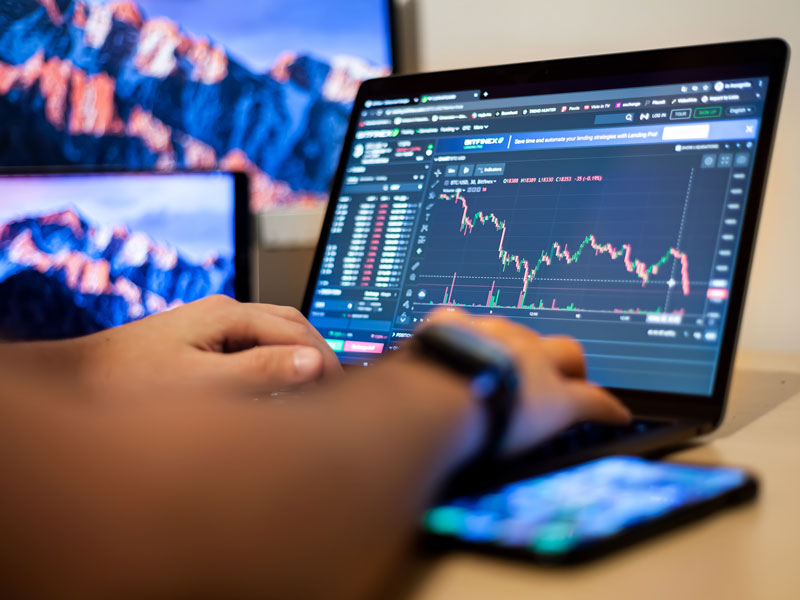
Understanding Forex Trading: Definition, Strategies, and Tips
Forex trading, or foreign exchange trading, is the process of exchanging one currency for another in the global marketplace. It is the largest financial market in the world, with a daily trading volume exceeding $6 trillion. Although it may seem complex, at its core, Forex trading hinges on simple principles of buying and selling currencies. Investors can profit from changes in currency values, which are influenced by a variety of economic, political, and social factors. For those looking to begin their journey in Forex trading, understanding the various platforms available is essential. You can find the forex trading definition Best Platforms for Trading suited to your needs.
What is Forex Trading?
Forex trading involves the buying and selling of currency pairs. For instance, if you were to trade the EUR/USD pair, you would be speculating on the value of the Euro relative to the US Dollar. If you believe the Euro will strengthen against the Dollar, you would buy the pair; conversely, if you think the Euro will weaken, you would sell it. This trading can be done through various methods, including spot trading, futures trading, and options trading, each catering to different strategies and risk profiles.
How Does Forex Trading Work?
At its most basic, Forex trading requires only two currencies to transact: the base currency and the quote currency. The exchange rate reflects how much of the quote currency is needed to purchase one unit of the base currency. Trading takes place on the Forex market, which is open 24 hours a day, five days a week, allowing traders to react to news and market changes in real-time.
Currency Pairs
In Forex trading, currencies are quoted in pairs. The first currency in the pair is known as the base currency, while the second is the quote currency. There are three main types of currency pairs:
- Major pairs: These involve the world’s most traded currencies, such as the USD, EUR, GBP, and JPY.
- Minor pairs: These exclude the USD and often involve other major currencies.
- Exotic pairs: These consist of a major currency paired with a currency from a developing or emerging market.

Why Trade Forex?
Forex trading presents numerous advantages, making it an attractive option for many investors. These advantages include:
- High Liquidity: With the largest trading volume, the Forex market offers ample opportunities for traders to buy and sell without causing significant price changes.
- Low Transaction Costs: Many Forex brokers offer tight spreads, making it cheaper to trade compared to other financial markets.
- Flexibility: Traders can choose to trade 24 hours a day, allowing them to react to global news and data releases quickly.
- Leverage: Brokers often provide the option of trading with leverage, allowing traders to control larger positions with a comparatively small amount of capital.
Strategies for Successful Forex Trading
While trading can be rewarding, it is also risky. Developing a solid strategy tailored to your trading style is crucial for success in the Forex market. Here are a few popular trading strategies:
- Day Trading: This strategy involves making quick trades within a single day, taking advantage of short-term price movements.
- Swing Trading: Swing traders hold positions for several days or weeks, aiming to profit from larger price shifts.
- Scalping: This method involves making a large number of trades throughout the day to accumulate small profits from each.
- Trend Following: This strategy involves analyzing market trends and making trades that align with the current direction of the market.
Risks Associated with Forex Trading
Like any investment, Forex trading carries inherent risks. Understanding these risks is essential for any trader. Here are a few key risks to consider:
- Market Risk: Sudden market movements can lead to losses, especially if trades are opened without proper analysis.
- Leverage Risk: While leverage can amplify profits, it can also magnify losses, leading to margin calls or account wipeouts.
- Interest Rate Risk: Changes in interest rates can impact currency values, making it crucial to stay informed about central bank decisions.
- Political Risk: Geopolitical events can create uncertainty in the market, affecting currency values dramatically.
Getting Started with Forex Trading
If you are new to Forex trading, consider the following steps to get started:
- Educate Yourself: Learn the basics of Forex trading, including terminology, currency pairs, and market analysis techniques.
- Choose a Reliable Broker: Select a reputable Forex broker that offers a trading platform that suits your needs.
- Create a Trading Plan: Develop a well-defined strategy that outlines your trading goals, risk tolerance, and trading style.
- Practice with a Demo Account: Use a demo account to practice trading without risking real money, helping you build your skills and confidence.
- Start Trading Live: Once you feel confident, consider moving to a live account, starting with a small investment.
Conclusion
Forex trading represents a dynamic and potentially lucrative market for investors worldwide. By understanding the definition of Forex trading, the mechanics of currency pairs, and developing sound trading strategies, traders can enhance their chances of success. However, it is crucial to approach this market with caution, as it also presents significant risks. Investing time in education, market analysis, and utilizing effective trading techniques will aid in navigating this exciting financial landscape. Remember, every successful trader starts with knowledge, practice, and a well-thought-out plan.
Leave a Reply